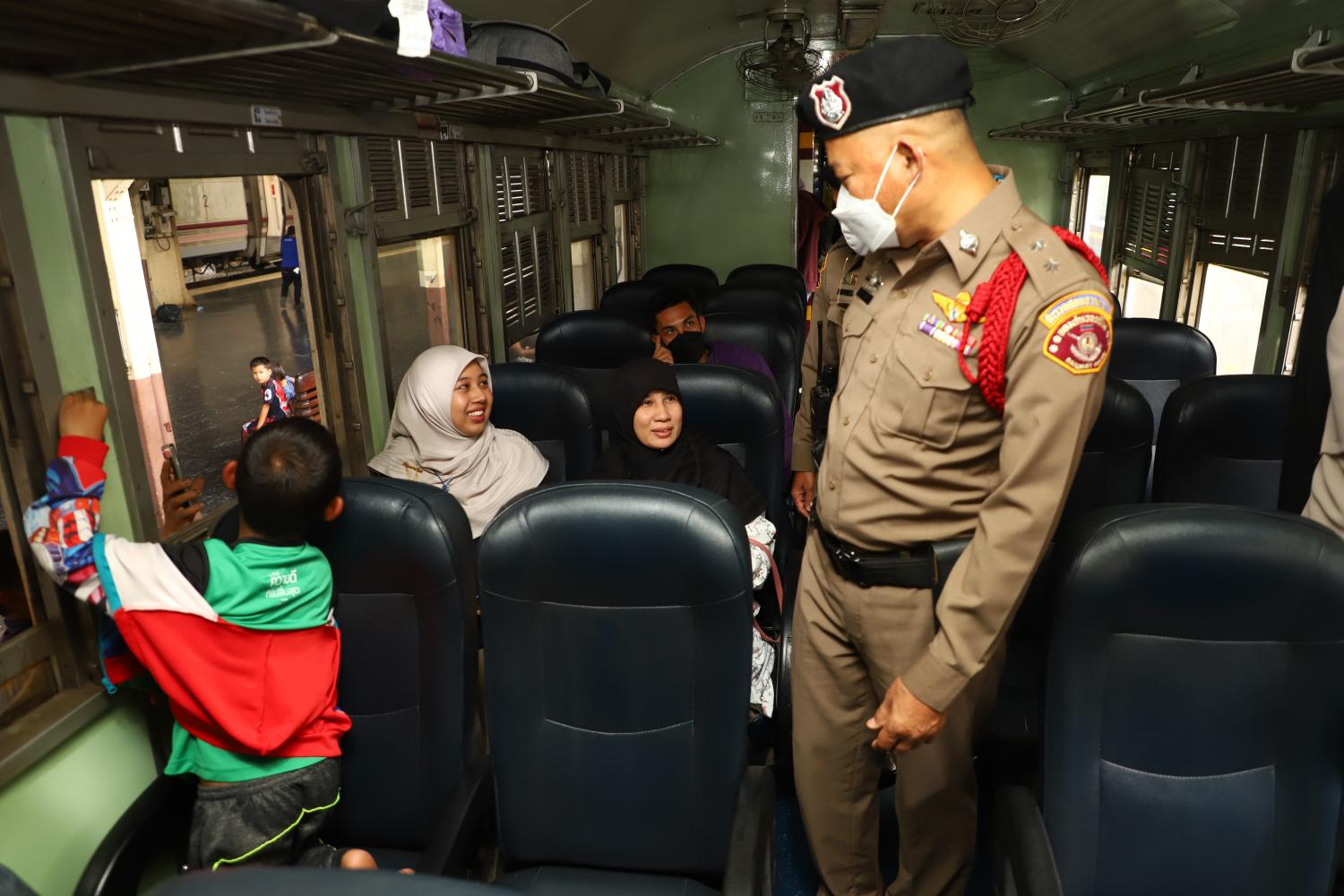
Pol Capt Chanoknard Wangsathi has been a railway police officer for six years. Next year will be her last year at work because the Royal Thai Police has announced that it will close the Railway Police Division in October 2023.
"I was shocked when I learned the news because I love my job. I don't want to believe that my work will be gone this soon. Our job is to protect passengers. Without us, who will take care of them?'' she asked.
The change is part of reforms underway affecting the national police, said Pol Maj Gen Amnaj Traipoj, commander of the Railway Police Division.
He told the Bangkok Post that the change was announced in the Royal Thai Police Bill.
The 163rd section says that a year after the law is announced in the Royal Gazette, the Railway Police Division will close. The announcement was made on Oct 17 so the change will take effect the same day next year, he said.
"There are 738 railway police. They can choose if they want to transfer to the Central Bureau of Investigation, under which our division comes, or move to other bureaus where they may fit in better,'' he said.
A 128-year history
The railway police officer division was founded in 1894 or three years after King Ram V laid down the foundations of the railway service at Hua Lamphong railway station in 1891, Pol Maj Gen Amnaj said.
He said the first railway service linking Bangkok to Nakhon Ratchasima (a 265km route) opened in 1900 and was followed by other routes. Railway police officers protected passengers from any possible crimes or even wild animals, he said.
He cited events during 1948-1951 in which many passengers reported crimes while on the train, such as theft and physical assault. During the period, some groups also transported propaganda documents against the government to border provinces in the South.
With the rise of criminal cases, Pol Gen Phao Siyanon, the commissioner of the Royal Thai Police at that time, upgraded the railway police department to a division.
He wanted to emphasise the importance of the railway police, he said. The Railway Police Division came under the Central Bureau of Investigation in 2005.
"Our division has six departments. Each department takes care of passengers based on the region including the Central area, the North, the South, the Northeast, the East and the Administrative Department,'' he said.
Railway police officers ride trains with passengers while some are also based at major train stations, he said.
Pol Maj Gen Amnaj said his division arrests about 900 suspects a year on average.
They include the case of a husband and a wife who smuggled 20,200 methamphetamine pills and 2kg of crystal methamphetamine pills worth five million baht from Bangkok to Chumphon and Nakhon Si Thammarat.
They were arrested in February by railway police officers in Hua Hin after the couple were seen acting suspiciously while the police were on patrol, he said.
"We have to take care of the safety of passengers for a total of 4,000km in Thailand. Although we have less than 750 officers, we put our utmost effort into our duty,'' he said.
Pol Maj Gen Amnaj said he is concerned about passengers' safety if railway police officers will cease to be.
The need for railway police
Pol Lt Gen Jirabhop Bhuridej, commissioner of the Central Investigation Bureau, said he disagreed with the plan to dissolve the Railway Police Division.
He said that when he was appointed commissioner, he looked into the details of the plan and aired his view that the division needs more manpower to cover the electrical railway system such as skytrains and underground trains and even the high-speed trains of the future.
"There is nothing much I can do although I do not agree with dissolving the division,'' he said.
When railway police officers case to exist, local police will take responsibility for any incidents that happen. He expects that there will be more security guards riding with passengers.
Pol Sgt Maj Yodchai Thongpetch, 32, joined the railway police three years ago because he loved travelling by train.
"When I was a newcomer, I helped an Alzheimer's passenger who was travelling alone from Kanchanaburi. He got off the train at Thon Buri station and did not know where to go.
"I spent time reviewing our CCTV footage until I found him and his relative who sent him to the station. I managed to contact his relative and the man returned home safely. I was proud of my work," he recalled with a smile.
Without railway police, passenger safety could suffer, he said.
"Other divisions cannot devote their time to guard passengers on the train as we do,'' he said.
Narong Nhophun, a passenger from Chaing Mai who disembarked at Hua Lamphong station, said he was startled to learn that police will no longer patrol the train from late next year.
"I think it's better to have railway police than not having them on the train at all because it makes me feel safe. It is sad to know that they will be gone soon,'' he said.